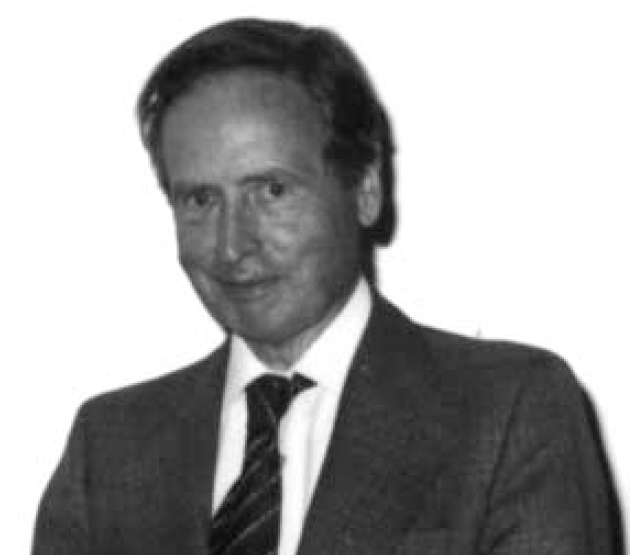Professor Emeritus Sir Ivor Batchelor died on 24 April at the age of 88. He was born in Edinburgh, the son of an Edinburgh physician, on 29 November 1916, was educated at Edinburgh Academy and Edinburgh University and graduated MB ChB in 1940. During the war he served as a neuropsychiatrist in the Royal Air Force Volunteer Reserve, with the rank of squadron leader, and on that experience was based his co-authorship of Aviation Neuropsychiatry in 1945. From 1947 to 1956 he was assistant physician and then deputy physician superintendent at the Royal Edinburgh Hospital under Professor Sir David Henderson. The two men became firm friends and Sir David's example and broad approach to psychiatry were a major influence in Sir Ivor's early career. During this period he and a psychiatric social worker published a series of papers on attempted suicide, leading to his election as a Fellow of the Royal Society of Edinburgh.

In 1956 Sir Ivor moved to Dundee as Physician Superintendent of the Dundee Royal Mental Hospital. The following years, until his retirement in 1982, were years of outstanding achievement as a hospital administrator, in the academic sphere, and as a nationally recognised contributor to numerous aspects of health service policy.
In the’50s the psychiatric services in Dundee were fragmented and underdeveloped. The two principal hospitals were amalgamated under one administration in 1959 and in masterminding the ensuing upgrading and reorganisation Sir Ivor displayed the leadership qualities that became his hallmark - decisive, farsighted, innovative and forceful.
When Sir Ivor was appointed to the new Chair of Psychiatry in Dundee University in 1962 he relinquished his National Health Service (NHS) administrative role but by then he had laid the foundations of a truly comprehensive psychiatric service. In 1962 the University Department of Psychiatry consisted of two rooms on the second floor of an old building. Twenty years later, in 1982 when he retired, Sir Ivor handed on a flourishing, well-funded and well-staffed department, securely accommodated in the new Ninewells Teaching Hospital and Medical School campus. He was himself a lucid and persuasive lecturer and he promoted a high standard of teaching by his department. He campaigned effectively for the development of teaching and research facilities in the Dundee psychiatric hospital, did much to foster the research interests and potential of both university and NHS staff and he enlisted contributions from clinical psychology, sociology, and biochemistry: he also inspired a survey of mental illness in a prison population.
Sir Ivor's reputation for analytical flair and critical judgment led to his serving on numerous committees with a wide range of remits beyond the boundaries of psychiatry. These included broad scrutiny of NHS organisation (especially the Royal Commission on the NHS), medical research, postgraduate medical education, the nursing profession and the law relating to abortion. Under his chairmanship the Committee on the Staffing of Mental Deficiency Hospitals in Scotland produced recommendations which aroused some controversy at the time but had lasting impact. He found time to revise three editions of Henderson and Gillespie's Textbook of Psychiatry, and in his retirement he published Policies for a Crisis, a critical review of NHS policies for care of the elderly.
The outstanding range and quality of Sir Ivor's contributions were recognised by his election to Honorary Fellowship of the Royal College of Psychiatrists, to Fellowship of the Royal College of Physicians of Edinburgh, the award of CBE in 1976 and a knighthood in 1981. His attitude to the Royal College of Psychiatrists has been misunderstood by some as one of antipathy. It is true he initially argued that the interests of psychiatry would be best served by a faculty within the College of Physicians but his scepticism was not sustained. He saw the College's achievements, and his election as Honorary Fellow meant a lot to him.
In his professional relationships Ivor Batchelor was a reserved man. Meticulously accurate and hard-working he expected no less of his staff. As a friend he was warmly empathic and supportive, and had a lively sense of humour. He was a keen naturalist and walker until he became physically disabled by illness in his later years. Disability, however, did not prevent him continuing to visit art galleries and museums, an ongoing source of pleasure to him and on which he was a considerable expert. He wore his erudition lightly and loved to open new horizons for his friends who seldom left his company without feeling stimulated and uplifted.
Sir Ivor Batchelor married Honor Wallace Williamson in 1941 and he is survived by her, their son and their three daughters.



eLetters
No eLetters have been published for this article.